UP TO THE MINUTE
Two Generations of Waterproofing Training - PODCAST TRANSCRIPT
July 16, 2025 at 10:50 a.m.Editor's note: The following is the transcript of a live interview with Bob and Miles Yglesias of The Catch-All. You can read the interview below, watch it on YouTube or listen to the podcast.
Intro: Welcome to CoatingsCast, the ultimate podcast dedicated to the science, art and innovation of liquid and fluid-applied roofing, coatings for surfaces and waterproofing. It's time to roll up our sleeves, put on our lab coats and dive headfirst into the world of liquid protection that keeps your roofs and surfaces in prime condition. The future is here and it's liquid, so don't miss out. This is CoatingsCast where every drop counts in the world of roof and service protection.
Karen Edwards: Hello and welcome to another episode of CoatingsCast from CoatingsCoffeeShop. My name is Karen Edwards, and today I am welcoming father and son team, Bob and Miles Yglesias from Pli-Dek. We're going to be talking all about training from a waterproofing perspective. Bob and Miles, welcome to the podcast. It's great to see you.
Bob Yglesia: Thank you, Karen. You as well.
Miles Yglesia: Yes. Thank you for having us.
Karen Edwards: All right, so let's start with introductions. Bob, why don't you get us started, tell us who you are, what you do there at Pli-Dek and yeah, fill us in.
Bob Yglesia: Name's Bob Yglesia. I've been doing deck coatings since 1982. My role here at Pli-Dek is a technical rep. Been at Pli-Dek now a little over a year and basically training and education is what we do and making sure the jobs are coming out correctly.
Karen Edwards: Excellent. And Miles?
Miles Yglesia: Yeah, so the last name is not a coincidence. We are father and son team. I'm told at least, still pending DNA test.
Bob Yglesia: Where are we going to start, huh?
Miles Yglesia: So I've been in the industry with Pli-Dek for about 15 years now. I'm a technical rep currently covering territories all the way from Texas and East. So it kind of started with in the beginning going ahead and working with GCs as an applicator for many years where I was able to transition afterwards into an estimating and sales role, kind of learning Pli-Dek on how it functions behind the curtain with the company. Shortly after that I was able to work my way into a operations manager role running multiple crews. Did that for a while until the opportunity presented itself to actually come aboard with Pli-Dek and actually work with the manufacturer themselves, which I am currently doing now and am honored to say the least.
Karen Edwards: Nice, nice.
Bob Yglesia: I want to add something to my introduction.
Karen Edwards: Sure.
Bob Yglesia: I started this in '82 but I've been installing and overseeing Pli-Dek for over 20 years. Jan and I go back a long ways. Adrienne and myself, they're like family to me, so I'm honored to do what we're doing now here in Florida for sure.
Karen Edwards: Yeah, so that's great. And Bob, you said since 1982, so you really know your waterproofing and I love that they brought someone with such experience as both you and Miles onto the team to focus on training because you've probably seen it all, haven't you?
Bob Yglesia: There's probably nothing I haven't seen and the stuff that is unique. Together, Miles and I will figure it out. But yeah, again, I've seen it all, any kind of issue, any kind of details. It's been an adventure but we can figure it out.
Karen Edwards: So Pli-Dek is a waterproofing solution for plaza decks, balconies, garages. How is it different waterproofing a surface like that versus waterproofing a roof on a building?
Bob Yglesia: Miles, do you want to take this?
Miles Yglesia: Yeah, so waterproofing versus a roof, they are two different scopes of work. There are some similarities even that we see with our trainings with our contractors where the roofing industry comes into play, where there's already a base experience when it comes to metal flashings, understanding fluid applied waterproofing applications. As far as that goes, you're kind of in between the two different scopes when it comes to the shingling, the bit-to-tin materials and the way everything else is applied divides the two. But there are those slight similarities that do help us, especially when it comes to training roofing contractors.
Karen Edwards: Right. I was just curious if you do see a lot of roofing contractors wanting to be trained in the waterproofing side of things because having diversity in your business and diversifying your offerings is important because if one part of your business slows down, another one may be able to pick up that slack. So do you see many roofing contractors coming for training?
bThat's pretty much what we're training right now, a lot of them. So we do have a few waterproof contractors that are trying to get in Pli-Dek, but the majority of our training is with roofing contractors. As Miles spoke on as far as they are similar. The flashing, they already know how to flash. So it makes it a little bit easier to show them the next steps and how to waterproof a deck.
Karen Edwards: Okay. So tell me a little bit about why training is so important. Obviously Pli-Dek has a commitment to properly training installers and applicators because they've got you guys as their training duo. So talk a little bit about the importance of that and why it matters.
Miles Yglesia: Yes.
Bob Yglesia: Go ahead, boss.
Miles Yglesia: The trainings are highly important to us. Pli-Dek is somewhat of a niche scope of work. Like we said, we cross train a lot of contractors into getting into Pli-Dek. So the training is highly important in order to pass on the knowledge that we have to have these contractors certified. To be able to apply the waterproofing correctly takes not only just the training, but also to build a relationship and continue that training once it goes out into the real world versus being into a warehouse training on sample boards. You're constantly going to run into different scenarios per job. And finding those solutions is something that we strive to be the best at. So when it comes to our trainings, we try to be very detailed and cover all bases.
Karen Edwards: Excellent. Does training extend to out in the field if a contractor maybe is doing their first job and they want a little support? Do you help them with that?
Bob Yglesia: Well, like I said, after our training in say in Tampa or whatever, when these contractors get jobs, we promise them that we're going to be on site. So training doesn't stop after our in-house training. It still could continue for a while. It's nothing that these guys get out and do their first deck coating without help and it comes out perfect. So we are committed to be on site at all times and that's what we do.
Karen Edwards: Yeah. All right. I want to talk a little bit about, you mentioned the last name being the same is not a coincidence. You guys are father and son and I can see the resemblance. I really can. So if-
Bob Yglesia: Well, we have never taken a DNA so...
Karen Edwards: Yeah. So I'll take your word for it though, just based on what I see. I want to talk a little bit about the dynamic of working together because you represent different generations and how does that help you with the training? Because you're probably working with maybe people that have been in the industry for a while and then some up-and-comers, the next generation. How does that affect your communication style or do you do things differently based on who the trainee is?
Miles Yglesia: Yeah, so I do see a different in the dynamic, especially nowadays, you have that younger generation coming up and starting to learn the industry, understanding our product. So I feel like I can approach and connect with that generation on a more even balanced playing field versus some of the older gentlemen that come in where my dad comes into play. They have the history, the relationship. They've a lot of times have the same network from all of the years being in the industry. So it's kind of like a dynamic duo in that way where there's not somebody that doesn't come through that door that we can't relate with and be able to help them out with whatever their needs are.
Karen Edwards: Bob, how about you? What's your perspective on that?
Bob Yglesia: He pretty much said it. You know what? It's definitely an honor to work with my son. And yes, I do see the older gentlemen, let's not say old, let's just say more mature, coming to me with phone calls, like I said. And the younger generation definitely is more attracted to Miles, which is fine and they connect better. So yeah, it's definitely noticeable and we definitely see it.
Karen Edwards: Yeah, I like that you've got the two different perspectives because some people definitely relate better to one style versus another, so I think that's really important. What's it like to work together as father and son?
Bob Yglesia: Oh, it's easy, Miles. It's an honor like I said. When we're working together, usually if I start rambling on, he'll give me that look for me to shut up and I know when I've talked too much and I think it's vice versa. But yeah, pretty much the right hand knows what the left hand is doing and it just works perfectly together. And the audience really seems to love it, I mean, especially when we train together, we do throw a few things in earth and a lot of laughter and it's definitely fun. It's never the same thing twice when we're training and someone always comes up and what I can honestly say, because he is the younger generation, I've learned a few things from him. I'm still old school, so he'll do something and I'm like, wow. I don't know how that worked, but it did.
Karen Edwards: Miles, how is it for you working with your dad?
Miles Yglesia: Yeah, I mean I think working with family in general, you're always going to have your difficulties and obstacles to overcome. In the last few years, like he's saying, he's been more cooperative, he's listening, so he's able to learn a little bit more these days. [inaudible 00:11:42]
Bob Yglesia: I want everybody to realize who trained him, but we'll just move on.
Karen Edwards: Now, let's keep it nice.
Miles Yglesia: Yeah. That's right.
Karen Edwards: I think a lot of your audience can relate because you probably see a lot of contractors that are family businesses, right?
Miles Yglesia: Absolutely.
Karen Edwards: Yeah.
Bob Yglesia: Yes.
Karen Edwards: It's definitely representative of our industry. I think you see it more and more. So Miles, you grew up in the waterproofing industry. Did you always know that you wanted to follow in your father's footsteps?
Miles Yglesia: Not necessarily. I think at a young age, learning construction in general, just being able to pick up a hammer and what hard work is about was something that I'm glad I experienced. And again, it was more of just instead of flipping burgers, go out there in the field and learn a trade that I'm grateful for. But as time went on and you realize that there's opportunity there, I did love the grit of it, the community and the industry as well. Besides father and son, just being out there with contractors and the guys, it's its own little world. And as I started growing in the industry, learning more, being able to get better opportunity, I feel like it just naturally kept evolving and became something where at a young age with the knowledge that I have and had, would kind of be a waste to throw it away at that point. So I just kind of stuck with it and we turned it in besides just him and myself with my little brother as well. So kind of like a full family dynamic when it comes to waterproofing.
Karen Edwards: Okay. So I'm glad you mentioned your little brother because we were chatting before we started this recording. And Bob, you mentioned that your other son is in the industry as well. What's he doing?
Bob Yglesia: Like I said, he took over my position. He's running the decking division. He started with me at a young age too, worked his way up, got him into Nevada, he became a foreman and when I left Nevada, he was the next point in line and doing an awesome job out there. As far as wanting both my boys to be in this field was definitely not, it's not what I wanted because they're both smarter than me, so they took it on. But I'm proud of both of them. They're exceeding more than I ever thought they would in this field.
Karen Edwards: Yeah, that's fantastic. So Miles, did you go to Pli-Dek first?
Miles Yglesia: Yes, correct.
Karen Edwards: And then you recruited your dad?
Miles Yglesia: Say that again?
Karen Edwards: Did you recruit your dad?
Miles Yglesia: Oh, coming into Pli-Dek first, no. So I was still in Vegas as an operations manager. All three of us were working for the same company. Shout out to Nevada Gypsum Floors, excellent Pli-Dek applicators. So as my father came over here to Florida where we currently are, after some time kind of getting the lay of the land, he knew that he was going to need some help here. And with our history with Jan Bagnall going so far back, a couple phone calls and him having the trust in us to come out here and kind of take the reins and expand and grow Pli-Dek on the East Coast, the opportunity was there, presented itself. So I thought about it and got tired of the Vegas heat and thought, you know what? A nice change of scenery can't hurt. And being able to work with the manufacturer of the product that I've been applying my entire life just seemed like a no-brainer to me.
Karen Edwards: Yeah, Florida's pretty hot too though, so you didn't get too far away from that heat. All right. I'd like to know more about the trainings, where they happen. Is it at your facility? Will you go to a contractor's location and how often do they happen?
Bob Yglesia: Well, our training is everywhere. We do have one, which you can find on our website under training and education, plidek.com, you'll see all our trainings that are local in Tampa, but we travel. We each have a suitcase for our tools or a case for our tools and we'll put it on a plane and we go everywhere on the east. So we train, like I said, like Miles said, we're getting ready to fly out to Puerto Rico on Monday or we have a week long training out there, come back and head to Texas. So our trainings are wherever a contractor needs us and if they are interested in our product and excited about it, we spread out expenses and we will go where we need to go to get them trained and get them moving for sure. That's what we do.
Karen Edwards: Yeah, so lots of frequent flyer miles and hopefully it comes with some first class upgrades.
Bob Yglesia: Yeah.
Karen Edwards: You're getting there. You're getting there. Okay, so let's talk a little bit about what makes Pli-Dek's waterproofing system unique. Why is that your go-to system when you were applicators and now you're representing and teaching others how to do it, what makes it different?
Bob Yglesia: I'll let Miles take this one. All I can say is it's waterproof, but Miles, go ahead.
Karen Edwards: Nice.
Miles Yglesia: So being on the applicating side, you get to experiment with many materials, different methods and means and Pli-Dek always kind of stay true to me in the application process of knowing how the system works, the functionality of it and the durability most importantly. So now being with the manufacturing side with Pli-Dek, what sets us apart is our listing, our BML listing for the WUI. We have our Florida approvals, 1-hour and Class A fire rating. Our systems rated up to 6,000 PSI. And something that really sets us apart is we also have an acoustical system assembly that can be installed in multifamily. Over common areas anywhere, we're trying to dampen the noise. We do have a system that has an acoustical mat applied with the lightweight concrete board, and we have a waterproofing solution for the top of it. So in the industry currently, we are on the leading edge of things when it comes to waterproofing deck systems.
Karen Edwards: I mean, you think about it, they see a lot of action. Whether it's foot traffic, whether it's vehicle traffic, they need to be durable and be able to withstand all of that traffic that they're seeing. So it's important.
Bob Yglesia: Well, and you got to figure, Jan developed this in I think '79, '80, but the system basically has not changed. I mean, he did what he needed to do to withstand the test of time. I mean, I think the only thing that might've had changed since he started was putting the paper down where the joints are, but for expansion and contraction. But I basically think that's pretty much all he has changed. Like I said, he will continue on the testing and if needed for Florida, wherever else, but they are committed.
Karen Edwards: Yeah. Yeah, I think the R&D component of it is just so important because while it's a good solid product, there may be something that can make it better or there may be a coat that changes or there may be something else that you need. So paying attention to what's happening in the field and in the industry, it's critically important. And it's great to see that Pli-Dek is one of those leaders.
Bob Yglesia: Absolutely.
Miles Yglesia: Absolutely. And we stand out from coast to coast, which is why us being here in Florida is a great thing for Pli-Dek because we're able to take the knowledge from the birthplace in California of Pli-Dek and expand it over and keep that seed growing across all the states. So it's really cool to see it develop and grow as the years go by.
Karen Edwards: Yeah. I'm curious because the US has so many different climates and different regions, are there special considerations that contractors need to think about based on where their location is or where the building or deck is located?
Bob Yglesia: Absolutely. Like I said, out here, we're inclement weather. So yeah, there's a little more prep that goes involved, a little more things that are a lot different than the West Coast. And like I said, we acknowledge what it is and him and Miles are directing it in the right direction to get this handled on our flashing and other steps of the system.
Karen Edwards: Excellent. Yeah.
Miles Yglesia: Yeah. Definitely moving out here and seeing the different obstacles that come with inclement weather versus being on the West Coast has been a slight learning curve, but it's been really nice working with the contractors and really understanding the differences. And this also goes back to why the trainings are so important on using the correct metals. We do have so much humidity being coastal, the salt in the air, the different types of corrosion that can occur and then of course the hurricanes, the wind uplifts. So there's a lot of variables that go into making sure that the system is applied properly and we'll be able to withstand anything that's thrown at it.
Karen Edwards: Yeah, performance is so important and application techniques and the materials that you choose along with the application can make all the difference in the world, right?
Miles Yglesia: Absolutely.
Bob Yglesia: And like I said, we will go in and we do our own little process of just if we're going to tell a contractor to do something, we're going to make sure it works. They have a lot of trust in us and we will never do nothing to mess that up. So we are very careful on how we approach every situation. And like I said, every detail is unique when it comes to being out here and what we need to do.
Karen Edwards: Sure. And every project's different. They're not all going to be the same, so they may have different challenges or different obstacles or different needs. So it's important to partner with the Pli-Dek team with Miles and Bob. So how does a contractor access this training? How do they say "I want to be trained"? Do you have a schedule of events somewhere? Do they contact you? What does that look like?
Miles Yglesia: Yeah, so on our website at plidek.com, we have an education and training tab that drops down and it shows all of the trainings going on from the West Coast to the East Coast with a date that they can click on, sign up for. We also have all of our flyers and information that we spread through all of our distributors coast to coast that they can go into and be provided with information there. And once the training is set up, all are welcome. And we always have a nice lunch for everybody. Our trainings typically go about... Usually we think they're going to be about two hours, they end up going up to four hours.
It's really great to see everybody show up and how involved and intrigued people are. And then something that's impressed us a lot lately has been after these long trainings, we'll have contractors sticking around about an hour afterwards. So it shows they're not eager to get out of there, they're still around, they want to learn more, they're asking us detailed questions that maybe weren't covered during the training. So it's really nice to see the involvement from all the contractors.
Karen Edwards: Yeah, that's fantastic. And I just want to reiterate that the website is P-L-I-D-E-K. That's how we spell Pli-Dek, plidek.com.
Miles Yglesia: Correct. Yes.
Karen Edwards: Yup. And if you didn't remember that, you can always find Pli-Dek on CoatingsCoffeeShop. We have a directory on there for them. And in our events section, we usually list all the trainings as well, so you can get information there. Well, Bob, Miles, this was a great conversation. I want to thank you both for being here today.
Bob Yglesia: We appreciate it and thanks for having us on.
Karen Edwards: Sure. Sure.
Miles Yglesia: Absolutely. And hopefully for everybody listening, they can go to one of our trainings, come meet us in person and get to know everybody.
Karen Edwards: Yeah, I love it.
Bob Yglesia: I have just one more message and this is for Jan, the inventor and he'll know what it means. We love you, Jan, but we're coming for you.
Karen Edwards: All right. I love it. Thank you. Everybody out there for listening to this episode. Be sure to subscribe on your favorite podcast platform, follow us on social media because we want to see you on a future episode. See you next time. Bye.
Outro: Thanks for joining us on this coating adventure. Stay tuned for more episodes. And in the meantime, be sure to follow us on social media to stay updated with all things roof coatings. Until next time, stay coated. For more information, go to coatingscoffeeshop.com.


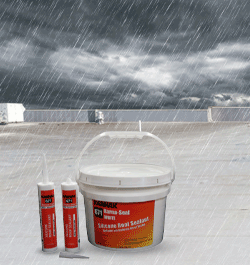


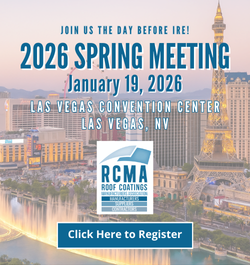


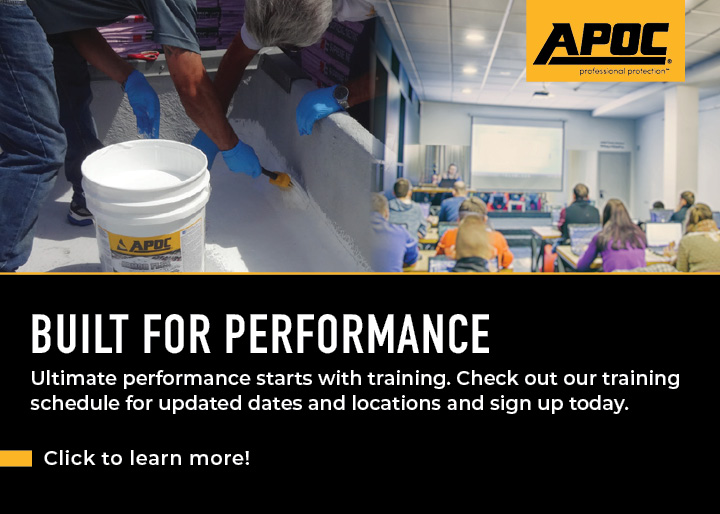

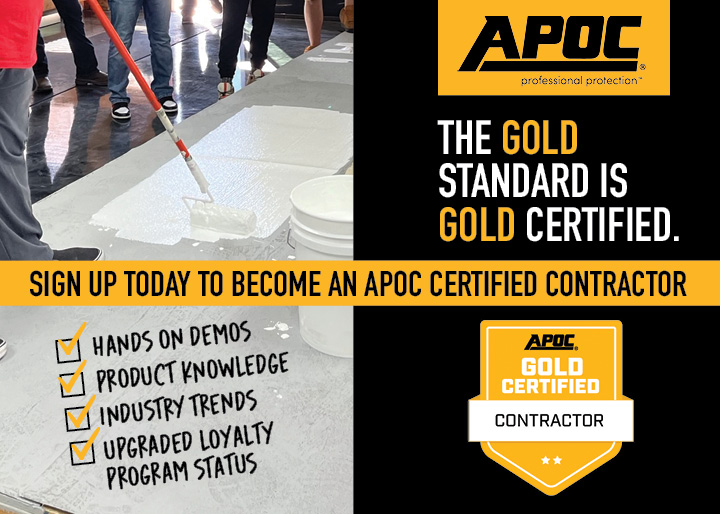

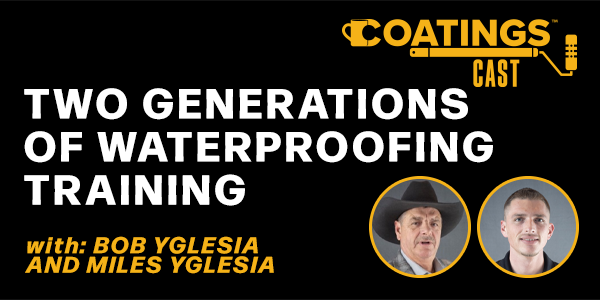
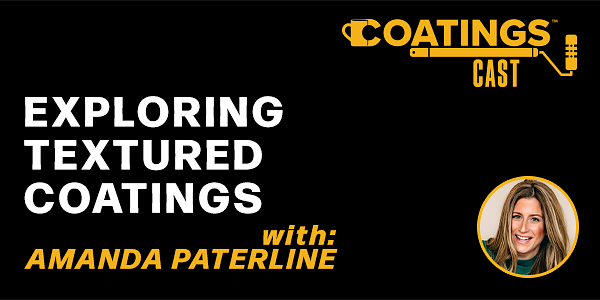
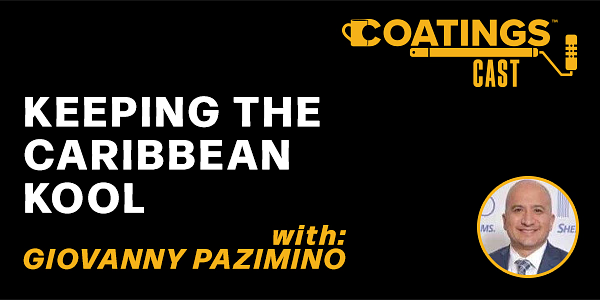






Comments
Leave a Reply
Have an account? Login to leave a comment!
Sign In